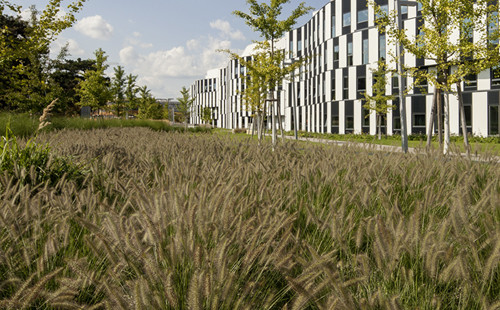Communicative practices in Vienna’s business hotspots run by Slavic-speaking migrants
SlaVienna - communicative practices in Vienna’s business hotspots run by Slavic-speaking migrants
Vienna as a city is strongly shaped inter alia, by migrants from Slavic- speaking countries, including primarily migrants from the Balkans along with the former Soviet Union citizens. Its urban space is characterized by various hot spots, mainly located in the Balkan community. Accumulations of small businesses such as cafes, restaurants, nightclubs, etc., run by Slavs migrants are typical examples of these hot spots. Cases in point can be found in the following streets in Vienna, namely in the Märzstraße, the Ottakringer Straße, and the Mariahilfer Straße, as well as widely spread across the 15th and 16th district. Similarly, small businesses, for example mostly grocery shops and services such as locksmith or shoemaker and fewer restaurants, managed by the former Soviet Union residents are currently scattered all over Vienna, ranging from the first to the 20th district, the majority of them being in the 3rd district.
These predominantly small-scale businesses represent typical forms of ethnic entrepreneurship because they started and are predominantly run by first generation migrants due to a specific set of reasons and motives: problematic access to the first labour market, unapproval of the educational achievement of the migrants gained in their countries of origin, insufficient knowledge of the host country’s language, etc. Self-employment, for instance starting a business is a chance for social advancement, including social and financial well-being. In this context, the language of the country of origin may often be turned from a barrier into a chance, which becomes commodified in business context.
These small businesses create local socio-economic spaces at several hot spots in Vienna which are distinct in cultural and linguistic terms, and which produce specific multicultural social urban spaces of their own, i.e. points at which members of the Austrian majority society and migrants meet.
The present project is to investigate local multicultural, though ethnically coined or sometimes even locally branded economic spaces in Vienna, created by the Slavs migrants, including representatives of the Balkans and the former Soviet Union. This research project adopts an ethnographic perspective as the focus is on communicative practices (e.g. script-based and oral) which shape and essentially characterize these local economic spaces and the ways in which ethnic businesses operate. This perspective, however, will further be complemented by narrative interviews with the involved stakeholders (ethnic entrepreneurs, customers, etc.) which provides insights into how they position themselves and understand the self-positioning of other interactants in a communicative process.
There are basically two research strands relying on a different set of methods and slightly differing in scope, which are relevant for this project. The first one deals with the construction of urban space based on the use of several languages. The linguistic landscaping and soundscaping analyses of several hot spots of the Balkan community in Vienna allows to reveal the specific linguistic and multilingual profile of these. Another strand focuses on face-to-face and/or virtual communication and service encounters in ethnic shops, cafes or restaurants in order to learn more about the role of various languages in and for these businesses. This includes communicative strategies by which interlocutors either implicitly or explicitly negotiate language choices and also possibly identity issues.
Both strands enable us to learn more about the use and functions of diverse languages (e.g. their native language(s) or the language(s) of their country of origin, German and possibly further languages) in these local economic spaces and thus also to assess whether and how ethnic entrepreneurs take advantage of their cultural and linguistic heritage in doing business in Vienna.
Project team
Lejla Atagan
Dina Stanković
Nadine Thielemann
Iryna Wehr
